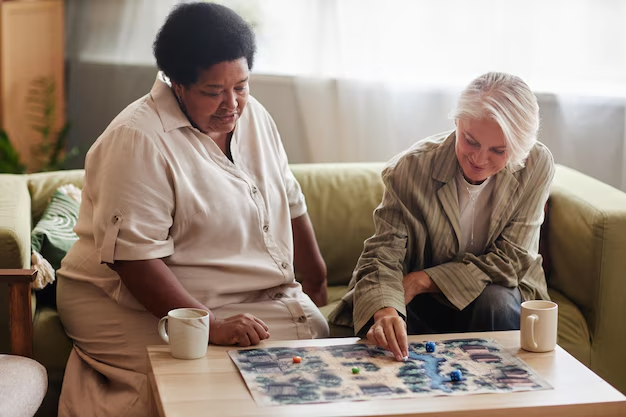Your Guide to Will Medicare Pay For Nursing Home
What You Get:
Free Guide
Free, helpful information about Medicare Insurance and related Will Medicare Pay For Nursing Home topics.
Helpful Information
Get clear and easy-to-understand details about Will Medicare Pay For Nursing Home topics and resources.
Personalized Offers
Answer a few optional questions to receive offers or information related to Medicare Insurance. The survey is optional and not required to access your free guide.
Does Medicare Cover Nursing Home Care? What You Need to Know
Navigating the world of healthcare coverage can be a daunting task, especially when faced with the question, "Does Medicare pay for nursing home care?" The answer, often wrapped in layers of policy details, is mostly no, but there are exceptions and related topics that could help relieve financial burdens.
Understanding Medicare's Role
Medicare, the federal health insurance program primarily for people aged 65 and over, covers some aspects of short-term stays but doesn't typically cover long-term care at a nursing home. Here's a quick breakdown:
Skilled Nursing Facility (SNF) Care: Medicare Part A may cover a stay in an SNF after a qualifying hospital stay (at least three days). This is not indefinite—only up to 100 days of skilled nursing care per benefit period. Full coverage is offered only for the first 20 days, and patients pay a coinsurance fee for days 21-100.
Custodial Care: This is what most people think of as traditional nursing home care, which assists with daily living activities such as eating, bathing, and dressing. Medicare does not cover custodial care unless it's part of the skilled nursing or rehabilitative care.
Exploring Alternatives to Cover Nursing Home Costs
With Medicare falling short in covering nursing homes, what options exist for financial support?
Medicaid Assistance
For those with limited income and resources, Medicaid serves as a critical alternative. Unlike Medicare, Medicaid covers long-term custodial care in nursing homes. Eligibility requirements vary by state but generally consider income and asset levels. Consulting a Medicaid planning expert might be beneficial to understand and qualify for this assistance.
Long-Term Care Insurance
Investing in long-term care insurance could be a smart way to safeguard finances. These policies cover services at both nursing homes and in-home care, although premiums can be costly. It's crucial to purchase as early as possible when premiums are more manageable and before any disqualifying health conditions arise.
Reverse Mortgages
For homeowners aged 62 or older, reverse mortgages let you convert part of your home equity into cash. This can be used to fund long-term care. However, ensure you understand the risks, such as the eventual repayment obligation and potential impacts on estate plans.
Alternative Financial Assistance Programs
Government Aid Programs
Veterans Affairs (VA) Benefits: If you or your spouse served in the military, VA benefits may cover some long-term care costs under certain conditions.
State-Specific Programs: Some states offer additional programs for senior care, designed to keep individuals in their homes longer or to assist with nursing home costs.
Credit Solutions and Debt Relief
Exploring credit solutions might help manage immediate financial pressures associated with nursing home care:
Health Care Credit Cards: Specially designed for healthcare expenses, these cards might offer deferred interest promotions that can lower upfront costs.
Personal Loans or Home Equity Lines of Credit (HELOCs): Consider this for liquidity, but ensure the repayment terms are clear and manageable.
Grants and Educational Opportunities
Education is power when navigating these waters. Look for seminars, online courses, or workshops that provide insights into federal and state aid programs, eligibility, and smart financial planning for aging individuals.
Quick Guide to Financial Assistance ⬇️
- Medicaid: For low-income individuals needing long-term care
- VA Benefits: Specific to veterans and spouses
- Long-Term Care Insurance: Private insurance option for comprehensive care
- Reverse Mortgage: For homeowners over 62 to leverage home equity
- State Assistance Programs: Varies by state; look into specific local options
- Health Care Credit Cards: For short-term financing
- HELOCs/Personal Loans: Provide flexibility but require careful consideration
Understanding these varied components can open doors to effective financial planning for nursing home care, offering peace of mind amidst life's uncertainties.
What You Get:
Free Medicare Insurance Guide
Free, helpful information about Will Medicare Pay For Nursing Home and related resources.

Helpful Information
Get clear, easy-to-understand details about Will Medicare Pay For Nursing Home topics.

Optional Personalized Offers
Answer a few optional questions to see offers or information related to Medicare Insurance. Participation is not required to get your free guide.


Discover More
- Am I Elgible For Medicare
- Am I Enrolled In Medicare
- Am I Qualified For Medicare
- Are Adult Diapers Covered By Medicare
- Are Chemotherapy Drugs Covered By Medicare Part d
- Are Colonoscopies Covered By Medicare
- Are Covid Tests Covered By Medicare
- Are Cpap Machines Covered By Medicare
- Are Cpap Supplies Covered By Medicare
- Are Dental Implants Covered By Medicare
